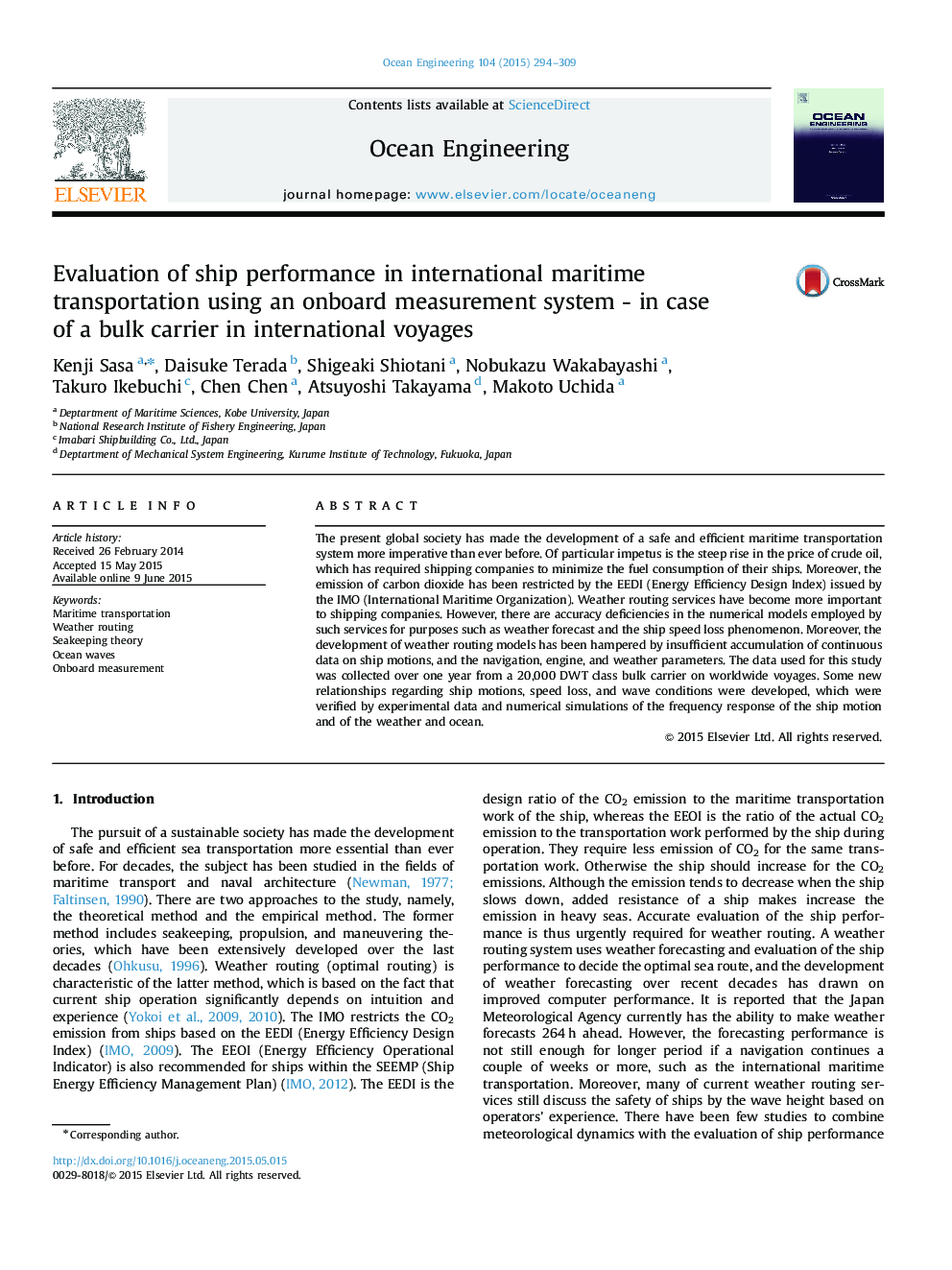| Article ID | Journal | Published Year | Pages | File Type |
|---|---|---|---|---|
| 1725358 | Ocean Engineering | 2015 | 16 Pages |
Abstract
The present global society has made the development of a safe and efficient maritime transportation system more imperative than ever before. Of particular impetus is the steep rise in the price of crude oil, which has required shipping companies to minimize the fuel consumption of their ships. Moreover, the emission of carbon dioxide has been restricted by the EEDI (Energy Efficiency Design Index) issued by the IMO (International Maritime Organization). Weather routing services have become more important to shipping companies. However, there are accuracy deficiencies in the numerical models employed by such services for purposes such as weather forecast and the ship speed loss phenomenon. Moreover, the development of weather routing models has been hampered by insufficient accumulation of continuous data on ship motions, and the navigation, engine, and weather parameters. The data used for this study was collected over one year from a 20,000 DWT class bulk carrier on worldwide voyages. Some new relationships regarding ship motions, speed loss, and wave conditions were developed, which were verified by experimental data and numerical simulations of the frequency response of the ship motion and of the weather and ocean.
Related Topics
Physical Sciences and Engineering
Engineering
Ocean Engineering
Authors
Kenji Sasa, Daisuke Terada, Shigeaki Shiotani, Nobukazu Wakabayashi, Takuro Ikebuchi, Chen Chen, Atsuyoshi Takayama, Makoto Uchida,
